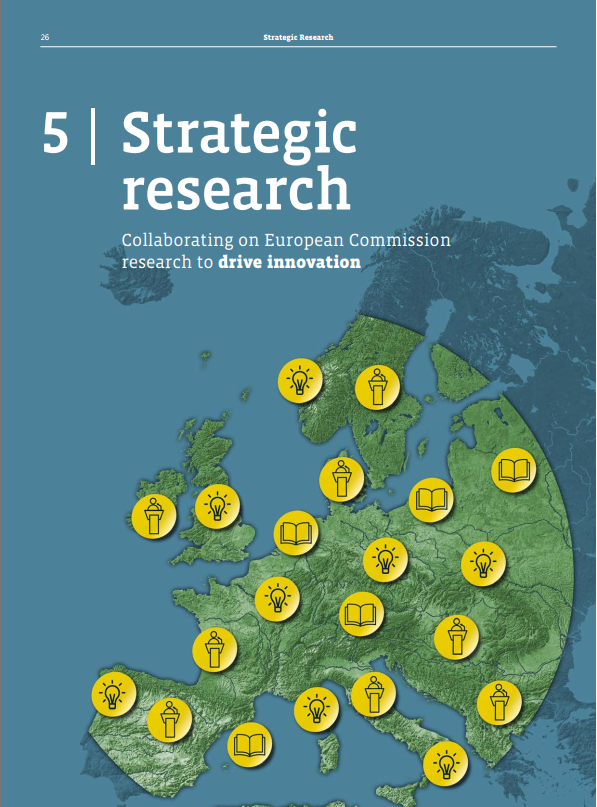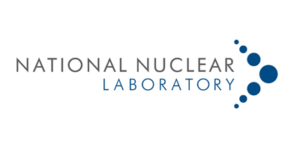Friday 12 July 2024
New Case Study Series Showcases Our Science and Technology Innovations
NNL is pleased to share our NuClear Science: Case Studies series 2023-2024, which showcases six standout highlights from across our portfolio.

Science and Technology is the beating heart of NNL. Whilst we could not possibly cover all the achievements our people and collaborators have developed within this time, this series recognises the impressive breadth of areas we are contributing to. In this series we’ve highlighted the excellent contributions of the NNL fellows to technical communities, two innovation projects that support decontamination and fuel inspection, two strategic research efforts which involve collaboration with the European Commission and publication of a special edition of a journal, and the materials performance core science theme. This publication follows on from previous releases of our first set of Science and Technology Case Studies which are available elsewhere on our website.

1. Our people.
The NNL Fellowship – world-leading experts and ambassadors pushing the boundaries of science.
Science and technology is the beating heart of NNL and it’s our world-leading scientists who continue to drive forward advances with their expertise and innovative thinking. NNL’s Fellows are subject matter experts who promote technical excellence and help shape national and international policy for a clean, sustainable nuclear future, by sharing information with other experts and building collaborations with real impact.

2. Innovation
Driving towards a sustainable future through a novel approach to decontamination.
NNL has worked with C-Tech Innovation and Sellafield Limited to develop a novel, cost-effective way of removing the corrosion-resistant surface layer of metal components for quick and easy decontamination during decommissioning. These high-value items can be returned to the supply chain in a circular economy, reducing both costs and environmental impact.

3. Innovation
An innovative new app to support inspection of nuclear fuel.
Inspection of nuclear fuel stored underwater in engineered ponds is vital for ensuring safe operations on reactor sites. NNL’s endoscopy team has collaborated with Cumbrian-based SME Mobetrics to develop the DEPEND app, which digitises and streamlines the labour-intensive task of recording and processing inspection data.

4. Collaboration and strategic research
Contributing world-leading research to benefit global challenges
NNL researchers led on four articles in a special edition of the Progress in Nuclear Energy journal, covering the Recycle theme of the UK government’s Advanced Fuel Cycle Programme. Some of the articles involved research collaboration with UK universities such as The University of Manchester, Lancaster University and University College London

5. Strategic research
Collaborating on European Commission research to drive innovation
NNL has participated in over 100 European Commission-funded programmes spanning all aspects of the nuclear fuel cycle. These collaborations, including the Euratom-funded PREDIS, bring specialist skills and knowledge to the UK, help safeguard the skills of a British workforce and position our researchers as subject matter experts.

6. Core science
Materials science enabling a low-carbon future.
Many of the reactors contributing to the UK’s low-carbon energy mix are operating well beyond their original design lifetimes because of improvements in our understanding of how materials change during service. New reactors are being designed to operate for longer, which means that components could need to withstand more severe conditions. NNL has pioneered materials testing methods and collaborated on several European projects featuring in-depth materials research to support the advanced reactors which will supply the UK with clean, safe power for generations to come.
Gareth Headdock, Chief Science and Technology Officer said:
“As a national laboratory, we make investments through our science and technology agenda to ensure we can continue to drive new breakthroughs in science for the benefit of society. These case studies are a snapshot of what we do, and an important insight into how our talented and dedicated people collaborate with a wide variety of experts to deliver exciting outcomes that take our sector forward.”
Paul Nevitt, VP for Science and Technology said:
“Our investment in scientific research, and in our people, is central to our role as the UK’s national laboratory for fission. I’m excited to share these case studies which show how this investment benefits society through partnerships with specialists from academia, industry and government.”
The case studies are complemented by the NuClear Science: Webcasts, which further showcase our work to deliver nuclear science to benefit society. The webcasts provide a forum to ask questions directly to some of the world’s experts in nuclear science and technology. Sign up to get news about the webcasts and case studies delivered straight to your inbox.

